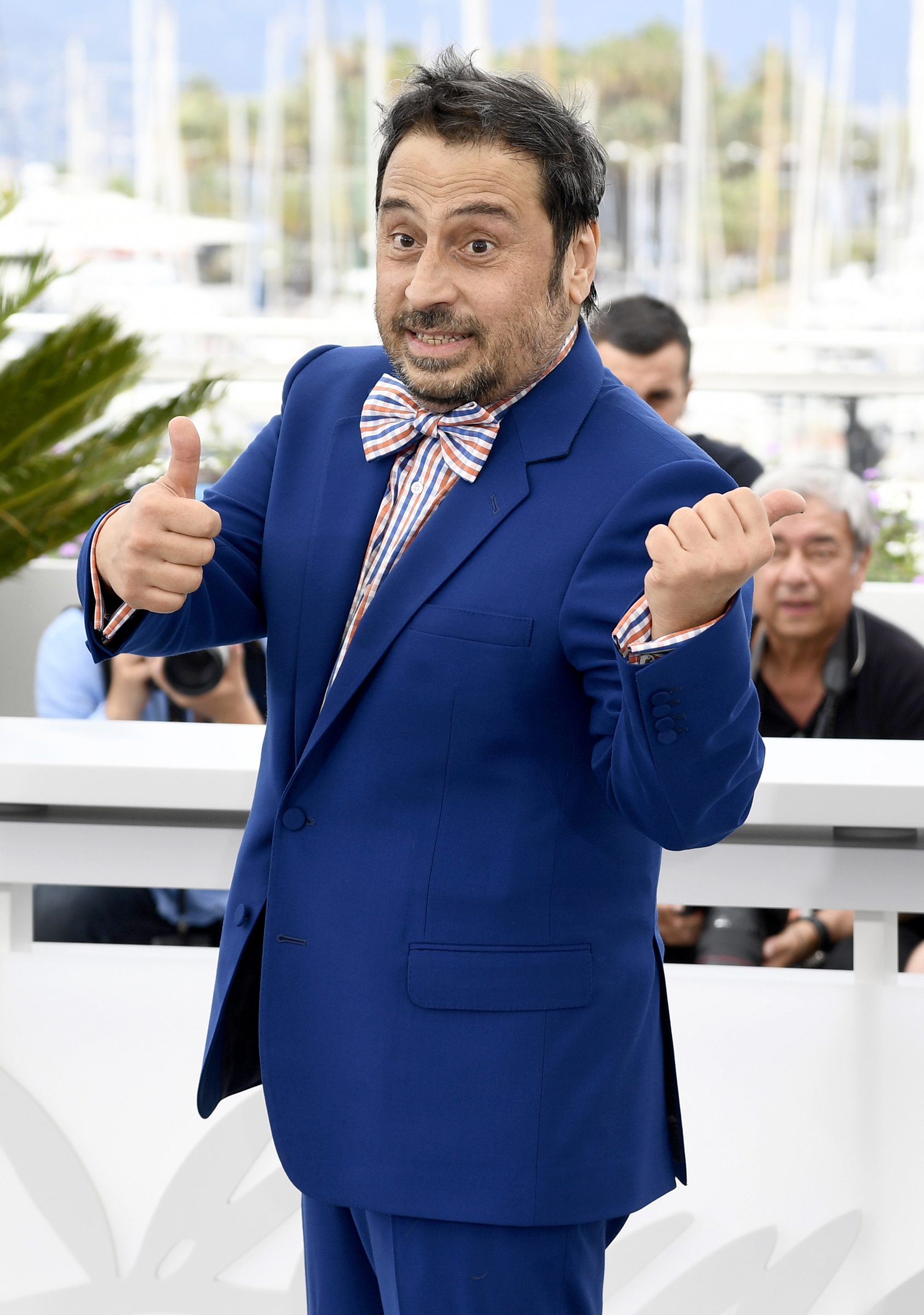
- Interviews
The “Dodo’s” Fear of Extinction: An Exclusive Interview with Panos Koutras
Panos Koutras’ career took off in 2009 with Strella, a film about the Greek queer community. The dramedy broke new ground for Greek cinema in featuring the first transgender lead role played by a transgender woman, Mina Orfanou. Since then, the director has stayed on track with stories that portray diverse characters caught in complicated situations, always infused with zest for life, love for Greece and humanity, and a touch of intentional melodrama.
Since 2007, when Koutras filmed Strella, there have been a lot of positive developments in the LGBTQ+ milieu. “It went quite fast, thank God,” the director told the HFPA in a Zoom interview on June 26, 2023. In his latest film, Dodo, which premiered last year at Cannes, “a nonbinary person is incorporated in the society in a natural way,” he chuckled, adding, “so I think Dodo portrays this change in a way; [queer people] are not questioned and no one makes a point of their gender or sexual orientation”. And then he cautioned: “We must always take into consideration that in many places of this world [being LGBTQ+] is considered a crime.” The battle is not won yet, he said, “but it is much better.”
When asked about himself and his life, Koutras paused, looking for the right words. “I am infinitely grateful that I’m alive,” he said then, firmly. “I am a survivor. I come from the generation of the 80s and the AIDS epidemic and I’ve lost many friends… But I’m not grateful for my career because I have worked for it! At the same time, I feel that I have done one tenth of the things I would like to do. It’s true that filmmaking is a difficult job and it takes a lot of time and involves problems, so I always feel I could have done so much more. I still feel that I haven’t yet made the film that’s really mine yet… So, probably it was a good excuse to go on living.”
Perhaps not coincidentally, Dodo is also about survival. All his films, the director said, refer to the society that he belongs to – the Greek society – and the driving force behind all his stories lies in the characters. Dodo dovetails a lot of recurring elements of his previous work. “In a way the film winks at my previous work,” he commented. “It’s like a closure at the end of a circle.”
Even though Koutras has been included in descriptions of “Greek Weird Wave,” a cinematic trend that is characterized by bizarre situations and enigmatic, aloof characters, this director’s work lacks any signs of cynicism. “I’m not the ‘Weird Wave,’ I’m the ‘Queer Wave,’” he laughed. “In our world, we struggle to be strong and successful but we are not always. There are moments in life when we hurt, we are weak and cannot perform well. All the characters [in Dodo] are at the point where they have to face their own weaknesses and limitations. That is what makes them human.”
And yet, it is a non-human being, the dodo – a strange-looking bird that became extinct on the island of Mauritius, killed off by Dutch settlers – that serves as a reminder of our self-absorbed, diminished humanity. A brief animated history of the animal at the film’s midpoint interrupts the flow of the story and pivots to the instinctive human cruelty toward a strange-looking bird that could not fly. The segment takes us momentarily out of the plot and effectively unites us under the umbrella of universal suffering.
“I’m heartbroken,” he said referring to the suffering of animals. “That is why I wanted [the dodo] to look as real as possible, not cartoon-like. The film is between being symbolic and real – but I wanted it to be real more than symbolic.”
Of course, the film is a metaphor for human cruelty and weakness more than it is a literal comment about our environmental woes. “The family in the film is ruined,” the director said. “They are no longer protected by money… They are bankrupt.” But he added that weakness may lead us to “be conscious of the world we live in.” He expanded: “If something happens on the other side of the globe, sooner or later it will have an effect on us. Now we are learning that in the most spectacular way. The West has been in control but now all these refugees come [to Europe] demanding a place in the sun.”
Though radical developments take place around the world, one part of the humanity is “still trying not to see [what’s happening] and live in a bubble.” He went on: “The totalitarian regimes are trying to perpetuate the bubble – they don’t want to see and they don’t want to hear – but suddenly the enemy comes from within. In Greece, we have experienced a dictatorship [1967-1973] and we know that these reactionary forces are not long-run. The battle between the two forces [the progressive and the reactionary] has always existed … Progress is never linear but I believe it wins in the end.”
In Panos Koutras’ film, the colorful, queer-like dodo, is captured, confined, feared, and finally left to suffer a second, symbolic extinction, caused by human ignorance. But it leaves something behind. According to the ancient Orphic Mysteries, the world was born out of an egg. And so the dodo’s colorful egg keeps the promise of survival within.